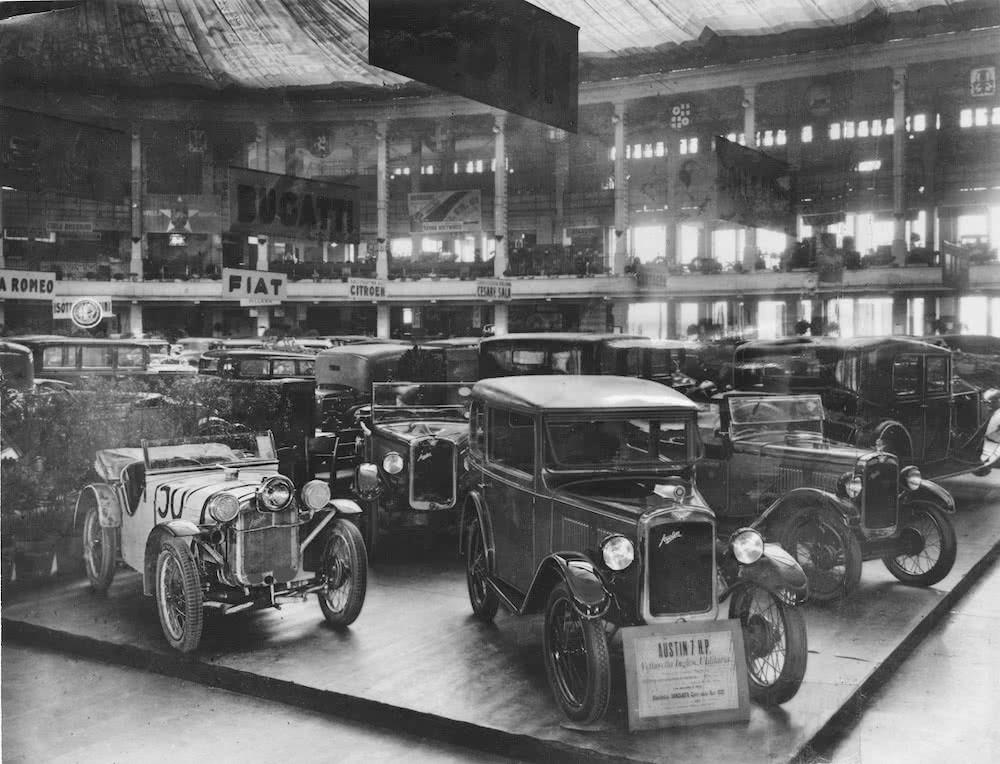Joined: Aug 2017 Posts: 1,385 Threads: 255
Reputation:
23
Location: North Herts
Beautiful image. Look to be right hand drive models.
For trivia interest (and I don't suppose these days we are allowed to say 'how typically Italian'...): RHT/LHT Right hand traffic/left hand traffic. Wikipedia says:
In Italy, it had been decreed in 1901 that each province define its own traffic code, including the handedness of traffic, and the 1903 Baedeker guide reported that the rule of the road varied by region. For example, in Northern Italy, the provinces of Brescia, Como, Vicenza, and Ravenna were RHT while nearby provinces of Lecco, Verona, and Varese were LHT, as were the cities Milan, Turin, and Florence.
In 1915, allied forces of World War I imposed LHT in areas of military operation, but this was revoked in 1918. Rome was reported by Goethe as LHT in the 1780s. Naples was also LHT although surrounding areas were often RHT. In cities, LHT was considered safer since pedestrians, accustomed to keeping right, could better see oncoming vehicular traffic.
Finally, in 1923 Benito Mussolini decreed that all LHT areas would gradually transition to RHT. In spite of this, some Italian heavy commercial vehicles were right-hand drive until the traffic code was changed in 1959.
Joined: Aug 2017 Posts: 3,071 Threads: 176
Reputation:
38
Location: Sherwood Forest
Car type: 1938 Talbot Ten Airline
Many Italian cities remained LHT until WW2 because the tramway systems were laid out for that arrangement. Even well into the 'fifties the majority of Italian-registered Lancias were RHD.
I have a 1938 RAC Continental Handbook in which it records about a dozen towns and cities with LHT, but when it comes to Verona the wording reads: 'take local advice'. The mind boggles!
Joined: Apr 2023 Posts: 1 Threads: 0
Reputation:
0
Location: Switzerland
Car type: Rosen/Seven special mix
The reason trucks were RHD until the eighties in mountainous regions like Northern Italy and Switzerland is due to the narrow mountain roads, the driver had a better view of the road limit, all Swiss made trucks and buses, Saurer, Berna and FBW were RHD, the sidecar combinations also were installed with the chair on the left side for the same reason (my 1949 6T Triumph had from new the sidecar on the left side)....
Joined: Aug 2017 Posts: 987 Threads: 22
Reputation:
10
Location: Near Cambridge, UK
Car type: 1928 tourer (mag type), short chassis Gould Ulster
I believe it was oinly in 1956 that Lancia changed to LHD as standard.
Joined: Aug 2017 Posts: 3,071 Threads: 176
Reputation:
38
Location: Sherwood Forest
Car type: 1938 Talbot Ten Airline
Probably later than that, Robert. My Lancia interest is the Appia: 80% of Series 1 (1953-56) were right-hand drive, 50% of Series 2 (1957-60) were RHD, and 30% of Series 3 (1960-63) were RHD. Practically all the RHD Series 1 were sold in Italy and Austria, whereas the majority of the RHD Series 3 went to the UK, Japan and Australia.





